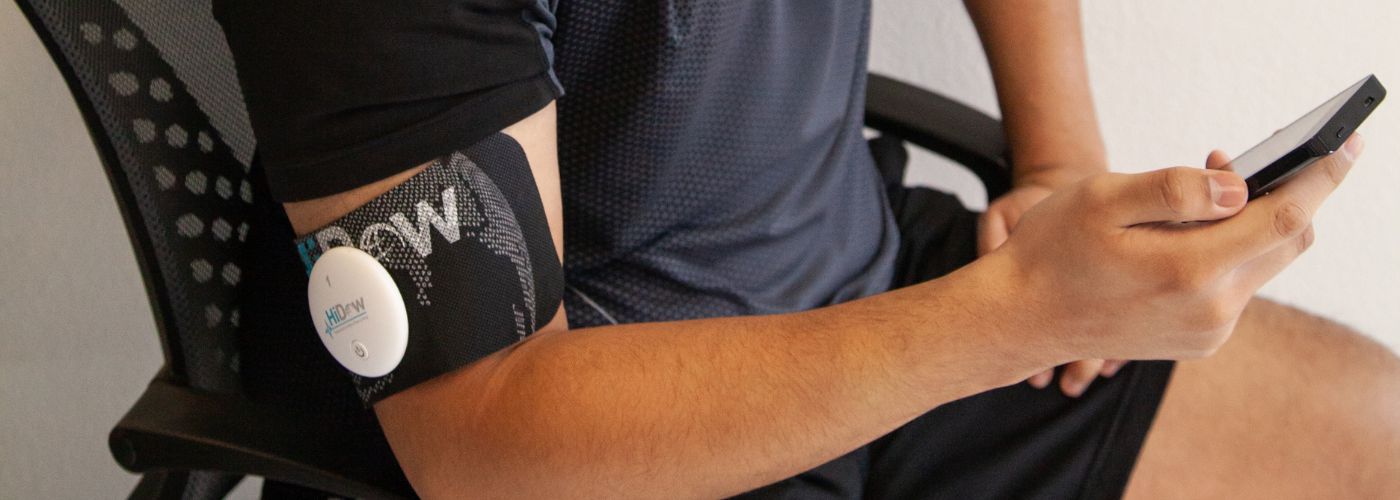Having bicep pain can be a real nuisance and can prevent you from doing the activities you enjoy. Fortunately, there are some easy steps that you can take to help relieve your bicep pain. In this blog, we will explain the causes of bicep pain and outline how to deal with it effectively.
What Causes Bicep Pain

Bicep pain can be debilitating and hard to diagnose, but understanding the causes of bicep pain is key to getting proper treatment. TENS & EMS therapy may potentially help those with bicep pain. The bicep muscle is located in the front of the upper arm and it helps to flex and rotate the arm.
Pain in this area can be caused by a range of issues, including physical injury or an imbalance between other muscles that are used for everyday movements. Knowing what could be causing bicep pain can help individuals get on their way to healing.
One common cause of bicep pain is overuse or tendonitis from repetitive motions like typing or lifting weights. Unaccustomed activities like throwing a ball or gardening, as well as poor posture when sitting at a desk all day, can also lead to inflammation in the area that results in discomfort.
Best Treatments For Bicep Pain

Bicep pain is something that needs to be taken seriously and treated quickly. Fortunately, there are a variety of treatments available to help alleviate bicep pain. From rest and physical therapy to medication and surgery, finding the right treatment for your condition is essential in getting back on track.
Resting the affected arm should be the first step toward treating bicep pain. This helps reduce inflammation by giving the muscle time to heal itself from any trauma or strain it has endured.
Physical therapy can also be beneficial in helping strengthen weakened muscles around the affected area, as well as stretching tight muscles that may have developed due to poor posture or overuse during sports activities.
Another treatment that may help bicep pain is TENS/EMS therapy.
TENS (transcutaneous electrical nerve stimulation) therapy is becoming a popular way to treat bicep pain. This type of treatment is non-invasive and poses little to no risks for the patient, making it a viable option for individuals suffering from soreness, inflammation, or tenderness in their biceps.
TENS works by sending mild electrical pulses through electrodes that are placed on the skin near the source of pain. These pulses stimulate sensory receptors which reduce pain signals sent to the brain.
The benefits of TENS therapy make it an attractive choice for anyone who wants to avoid potentially harmful medications like anti-inflammatories or narcotics. Additionally, TENS can be used on other parts of the body if needed and does not require extensive training or preparation before use.
What Doctor To See For Bicep Pain

If you have been experiencing bicep pain, it is important to know which doctor to visit and the proper treatment for relieving your discomfort. Depending on the severity of the injury, there are several different medical professionals who may be able to help.
An orthopedic surgeon specializes in treating musculoskeletal injuries and is one of the primary medical professionals someone should see if they are experiencing bicep pain. Orthopedic surgeons can provide diagnosis and treatment options based on a detailed physical exam. They may also order additional tests such as an MRI or X-ray for a more thorough evaluation of the issue.
Another professional who can help with bicep pain is a physical therapist or occupational therapist. These practitioners use evidence-based techniques to improve strength, flexibility, and mobility in order to reduce discomfort from chronic injuries. They may prescribe physical therapy along with a TENS device to heal damaged tissue potentially.
Can A Rotator Cuff Tear Cause Bicep Pain
A rotator cuff tear is a common injury that can cause severe pain in the shoulder and upper arm. But what many people don’t realize is that a rotator cuff tear can also be responsible for bicep pain. Understanding how a rotator cuff tear affects the biceps tendon. Can help alleviate this type of discomfort. and possibly restore mobility to the affected area.
The biceps muscle runs along the front of the arm. Extending from the shoulder to the elbow joint, and is connected to both sides of the rotator cuff by tendons. If one or both of these tendons become torn due to an injury or overuse. It can lead to extreme pain in not only the shoulder but also in your bicep. The resulting swelling may make it difficult for you to move. Your arm freely results in further discomfort and a limited range of motion.

Related Stories
Women Who Move: The Missing Manual
The Hormone–Pain Connection When estrogen is stable and high, the brain’s built-in painkiller system works...
Feb
When Courage Takes Flight: Lessons From a Women’s Skydiving Record Attempt
Photo by Taylor Buffington (T-Buff) We went to Eloy, Arizona on a mission — to...
Nov
Sciatica: 1, LeBron: 0 (For Now)
File photo: LeBron James #6 of the Los Angeles Lakers. (Photo: Thearon W. Henderson /...
Oct
Pickleball vs. Tennis: The Science of Recovery
For years, tennis was the stand-in for movement: endurance, coordination, and power all at once....
Oct
5 Ways to Support Bone Strength with HiDow
World Osteoporosis Day (October 20) October 20 is World Osteoporosis Day, and chances are, you’ve...
Oct
FDA-Cleared Is a Flex. Here’s Why.
Pulling Back the Curtain You’ve seen it on boxes, on websites, in ads: FDA-cleared. It...
Sep